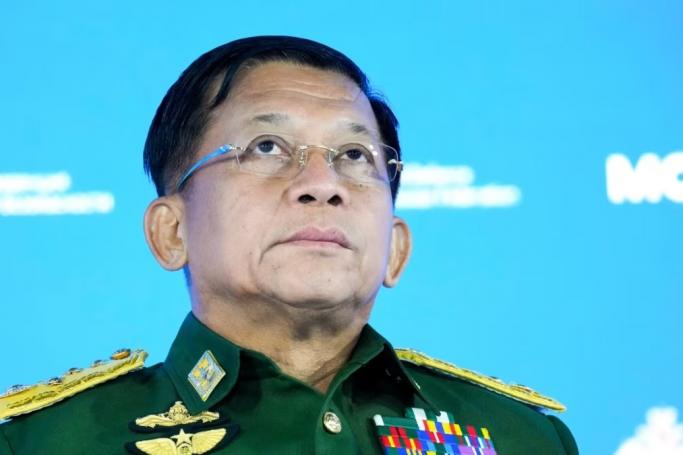For the first time, researchers have mapped the Myanmar Army's entire hierarchy and chain of command – revealing which senior commanders were in charge at the time of and bear responsibility for hundreds of alleged incidents of rape, torture, enforced disappearances and killings of civilians from 2011 to 2023.
These and other alleged abuses underpin what the United Nations Independent Investigative Mechanism for Myanmar recently called “a dramatic increase in war crimes and crimes against humanity in the country.”
The research, ‘Under Whose Command? ’was conducted by Security Force Monitor (SFM), a project of the Columbia Law Human Rights Institute. Drawing on thousands of data sources, it reveals how allegations of human rights abuses against soldiers from low-level units across the country can be linked up the chain of command to senior army commanders.
It finds that since 2011, when Min Aung Hlaing became Commander-in-Chief, 64% (of 79 individuals) that have held senior positions in the Army have had disappearances, killings, rape or torture allegedly committed by units under their command.
Since the Army ousted the democratically-elected government in a coup d'état in February 2021, it is accused of enacting a brutal crackdown. According to the United Nations, Myanmar’s military has created a perpetual human rights crisis and its generals “have embarked on a scorched earth policy in an attempt to stamp out opposition.”
Efforts to hold senior leaders of the army accountable for these abuses are hampered by the secrecy that shrouds the Army’s operational structure. SFM’s research aims to support efforts to deliver international accountability by shining a light on one of the most secretive and opaque militaries in the world.
Tony Wilson, the founder and director of the Security Force Monitor, commented:
“There is huge evidence that human rights abuses are being perpetrated in Myanmar on a vast scale, yet proving individual responsibility for war crimes is fiendishly complicated. We now know, for the first time, the senior commanders in charge during every alleged human rights abuse committed by an army unit.
“We hope this work can aid efforts to deliver accountability for alleged war crimes committed by the Myanmar Army, and justice for those that continue to suffer at their hands.”
This research reveals those responsible for a series of human rights abuses that have been well-documented by Myanmar and international activists.
For example, in an incident similar to many reports around the country, NGO Human Rights Foundation of Monland alleged two civilians were shelled by an army battalion in early March 2023. The research establishes the entire chain of command from the alleged perpetrator to the regional commander Myat Thet Oo.
This alleged killing is part of a pattern - since 30 March 2011, five of the six commanders of Southeastern Regional Military Command (under whose command this incident occurred) have had at least one allegation of killing, rape, or torture committed by units under their command.
Similarly, the research documents the entire chain of command behind the rape, torture and killing of two teachers in northern Myanmar, which shocked the world in 2015, from the low-level soldiers directly accused of commiting these violations to senior commanders with long track records of similar violations under them.
Many of the most senior figures in the army continued to receive promotions and additional power despite continued allegations of human rights abuses.
SFM’s data explorer allows users to explore the chain of command for allegations of human rights abuses anywhere in the country between 2011 and 2023, and click on each senior commander of the Myanmar Army to view specific allegations linked to them.
Security Force Monitor (SFM) is a project of the Columbia Law School Human Rights Institute. Its website can be found at: https://securityforcemonitor.org/
SFM promotes accountability for abuses by security and defense forces by investigating their command structures and operations. Its research enables advocates, lawyers, and journalists to determine which forces are responsible for human rights violations and then hold them accountable.
Building on the work of national and international human rights organisations and local activists, SFM has been able to piece together the most comprehensive picture of the army’s operational structure to date.
To establish the army’s structure using only open-source information SFM mainly relied on sources far afield from human rights documentation - books, independent media and the military’s own newspapers. We rigorously tracked what each of these sources reported about every unit and commander over the course of decades to build up its picture of the army.












